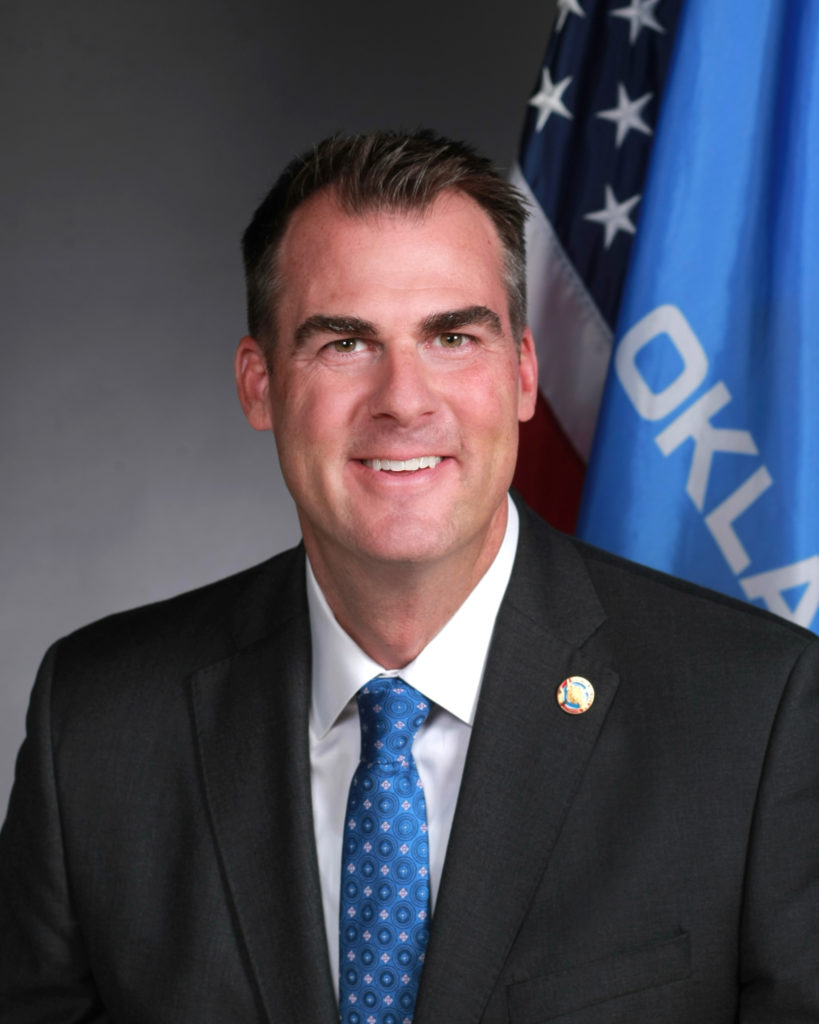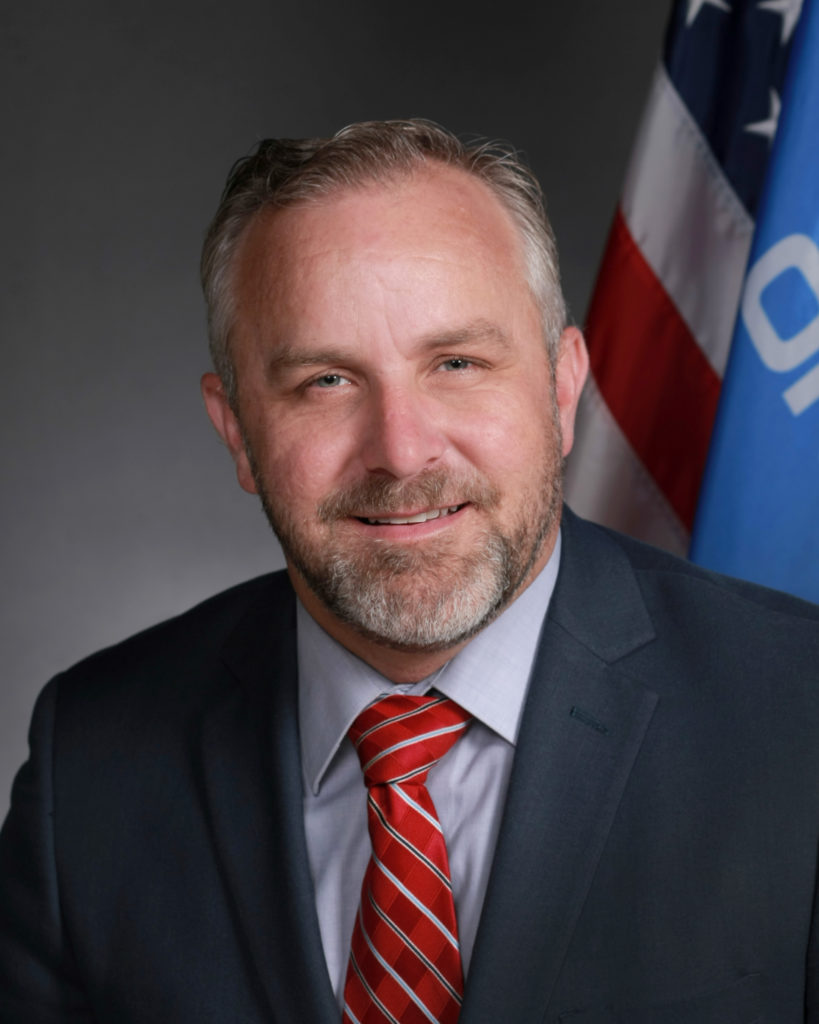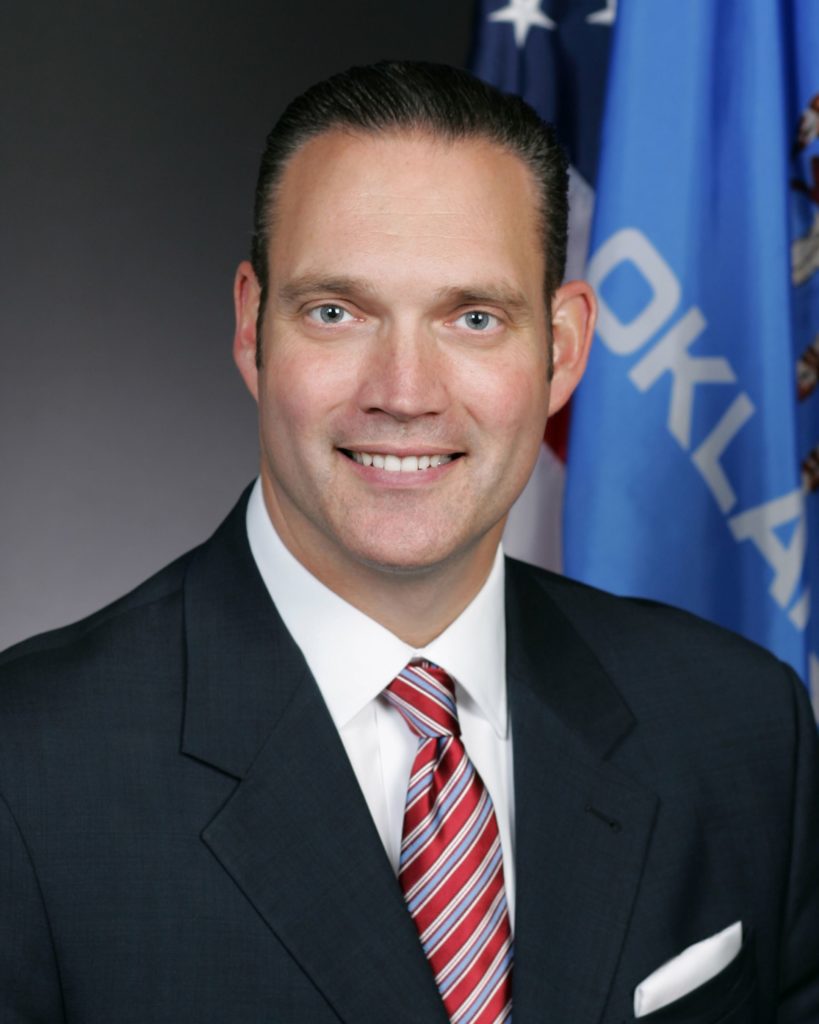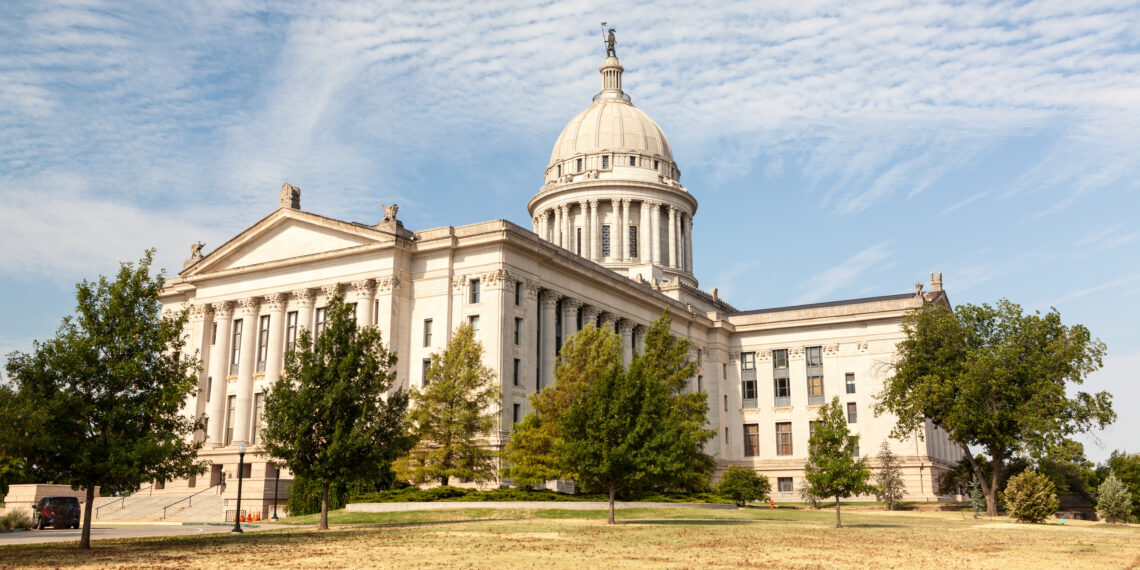OKLAHOMA CITY (OBV) – Gov. Kevin Stitt and leaders of the Oklahoma Legislature gathered Monday to review budget proposals for the 2024 legislative session.

The 2024 Budget Summit was held this year in full transparency, allowing a livestream of the proceedings and members of the media to attend.
Stitt was optimistic that a budget could be approved quickly.
“Today, this is the most transparent [this process] can be. We got cameras rolling, and hopefully, I think we can get to a budget today. That would be the hope,” Stitt said in his opening remarks at the top of the summit.
However, Senate President Pro Tempore Greg Treat, one of the legislative leaders in the summit, said in his opening remarks that there would be no quick approval.
“We, [the Oklahoma Senate], don’t anticipate walking out of here with a budget today. I know you suggested we may be able to do that. I don’t foresee any ability to do that because of our commitment to transparency,” Treat said. “The intent of our transparency process is to make sure that we hear what is important to the House and to the governor, and that we take those back to our subcommittees for consideration, that we make sure that legislation hasn’t already been killed that dealt with those to make sure that we don’t pervert the process and subvert the process like we have been accused of in years past.”
Treat said they have until May 31 to get a budget passed.
“We don’t intend on trying to rush to an agreement today,” he said. “We have not a whole lot of time, but we have plenty of time to get this right.”
House Speaker Charles McCall, Senate Appropriations Chair Chuck Hall and House Appropriations Chair Kevin Wallace were also part of the summit.
Stitt said his first priority for the budget process is to keep expenses in line with revenue.
“I think most Oklahomans understand what is our income, we cannot build ongoing obligations higher than our income,” Stitt said.
Stitt’s second priority is another tax cut. He already signed a bill this legislative session cutting the state’s grocery tax.
“I think it’s important for Oklahomans if we’re going to spend savings, if we’re going to invest in a lot of things, then we should be able to give Oklahomans another tax cut,” Stitt said. “There’s a lot of ways to do it, but one of the ideas is to take away all the brackets underneath. So, the poorest Oklahomans would literally pay no tax if we went to a flat bracket, and then we would start on a path to zero.”
Stitt said his third priority is to maintain a savings fund for the state.
“When I was running back in 2018, most of you remember that there was very little money in savings. If you have no money in savings, when there is a budget downturn, everybody’s fighting, ‘What are we going to cut?’” Stitt said. “We have a historic savings right now. I don’t want to blow through that savings and put Oklahoma in a bad situation in years to come.”
Maintaining a $5-billion savings fund is the prudent course of action, Stitt said.
“You guys have such a tough job deciding what priorities to invest in. There’s a million good things, and people are always coming at you, asking you to invest in this and that, but we have to keep in mind what our reoccurring revenue is. We got to keep in mind what our savings needs to be. And we have to keep in mind that Oklahomans are hurting,” Stitt said.

Treat said compromises will have to be made by the Senate, the House and the governor to put a budget together.
“We know at the end of the day that there will be priorities that the Senate does not get, and we also understand that there will be priorities that the governor and the House get that we did not favor. That’s just part of negotiation. We’re completely fine with that walking into here,” Treat said. “But I want to be abundantly clear that our subcommittees will not be cut out of this process. That our subcommittees will be back in charge of their own subcommittee budgets. We will take back what we learn today to those subcommittees.”
Treat stressed the importance of fast-tracking money to the Oklahoma Department of Emergency Management.
“I believe that we can all be reasonable around the table and get that taken care of with haste,” Treat said. “Governor, whatever you say we need for emergency management, the Senate stands ready to deliver on that if you need a new deposit. I know a lot of that has been spent. Oklahoma is no stranger to these emergency situations. We have excellent emergency management.”
The Senate pro tem spoke emphatically about the importance of funding teacher pay raises that were promised in a $625-million education package last year.
“The Senate position is that we made a commitment last year to pay the teachers their pay raise, that portion of the pay raise for as long as the pay raise is in effect. I believe we had an agreement. I know it was an agreement because it was in statutory language,” Treat said.
Treat objected to a recent proposal to fix statutory language concerning teacher pay raises.
“When you all sent the proposal over to fix it a couple weeks ago, I found it objectionable because it took away that amendment in statutory language, and we would no longer be paying teachers across Oklahoma,” he said. “The mantra last year from the other side of the rotunda was ‘every student, every teacher, every school.’ The ‘every teachers’ includes both on and off the formula. We came there reluctantly last year. That was an agreement we made with our counterparts across the way, and we intend on honoring that commitment and not backing out a year later.”

McCall listed three budget priorities for the House of Representatives: funding sheriff’s offices and police departments across the state, maintaining a healthy local savings and cutting taxes.
“Number one, a tax cut for the people of the state of Oklahoma. That is the group that elects us. That is the group that sends us to the capitol to represent their interests,” McCall said. “The House of Representatives still prioritizes a tax cut in addition to the spending requests that have disseminated and moved through the process.”
Stitt in February signed House Bill 1955 into law, cutting the state’s grocery tax.
Oklahoma’s state sales-tax rate, which is placed on grocery and other retail purchases, is 4.5 percent. HB 1955 eliminates the tax on all foods that are not prepared fresh in stores.
The Board of Equalization certified $13.9 billion in authorized funds for the Oklahoma Legislature, including $11.1 billion in reoccurring funds and $2.8 billion in one-time funds. Stitt touted the available funds and pushed for the Senate to pass the grocery tax cut and once again called for an income tax cut.
Stitt has repeatedly pushed for income tax cuts, even calling two special sessions – one in September and one before the start of the 59th Legislature.
Treat has clashed with Stitt over tax cuts, having adjourned the Senate on the first day of the last two special sessions. He said both times that it would be irresponsible to pass tax cuts before knowing how much in authorized funds the legislature would have.
The pro tem announced in February that the Senate would pass the grocery tax cut, but would not pass any other major tax cut this legislative session.
Treat said the Senate passed the maximum tax relief they believed possible based on the authorized funds certified by the Board of Equalization.
Stitt’s aim is to cut income tax down to zero.
“Path to zero means when we have excess revenue, next year when we come into this room in this building, and say there’s a billion-dollar surplus again, it’s automatic that we should give Oklahomans a tax cut. We can modestly grow government, but I think that is a path to zero that we should consider,” Stitt said during the summit. “Oklahomans are hurting, and if you have not got a 25 percent pay increase since 2020, you’ve probably got a reduction in your salary because of inflation and what things are costing.”
Oklahoma’s individual income tax system has six income tax brackets ranging from 0.5 percent to 4.75 percent for top earners. The 4.75 percent rate kicks in at a $7,000 annual income.
All Oklahomans and more than 95 percent of businesses in the state pay the individual income tax. The income tax’s standard deduction is $6,350 for single filers and $12,200 for joint filers.
McCall filed several tax cut bills for this legislative session. Those bills are as follows:
- HB 2948 – Corporate income tax phase out over five years.
- HB 2949 – Flat rate 4.25% personal income tax effective Jan. 1, 2024; rate imposed on taxable income amounts above specific figures based on filing status.
- HB 2950 – .25% personal income tax decrease effective Jan. 1, 2024, and following tax years.
- HB 2951 – .25% personal income tax decrease for 2024 and 2025, with rates to restore to current level (current rates and brackets) for 2026, and following tax years.
- HB 2952 – .50% personal income tax decrease for 2024 and 2025, with rates to restore to current level (current rates and brackets) for 2026, and following tax years.
McCall spoke with OBV earlier this year and emphasized the need for an income tax cut. He said it boils down to making Oklahoma more competitive and growing its workforce.
“I think long term, we have to put Oklahoma on a path to get to zero,” McCall said. “Human resources are mobile. Capitol is mobile. When we talk about workforce, every state’s having workforce challenges,” McCall said. “We want to import talent into the state of Oklahoma while we’re grooming and building it ourselves through our youth and through education. When human resources and capitol are looking to go somewhere, they are going to the states where there is no taxation on there productivity. That’s why we got to get to the zero percent personal income tax in the state of Oklahoma.”
The Oklahoma legislature has passed other tax reform measures during the past two legislative sessions, including eliminating the franchise tax, allowing full expensing of capital investments for businesses and eliminating the marriage penalty within the state’s individual income tax law.

















